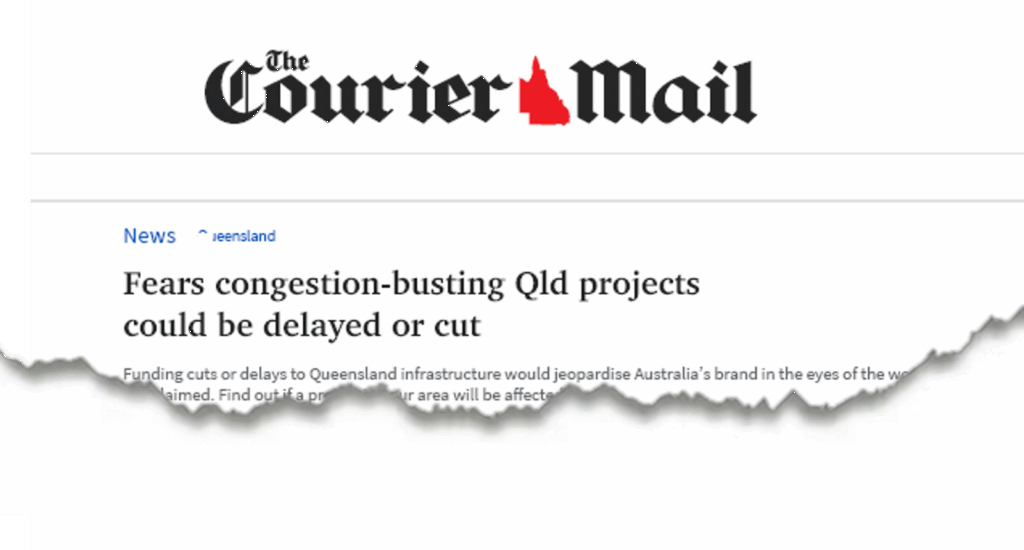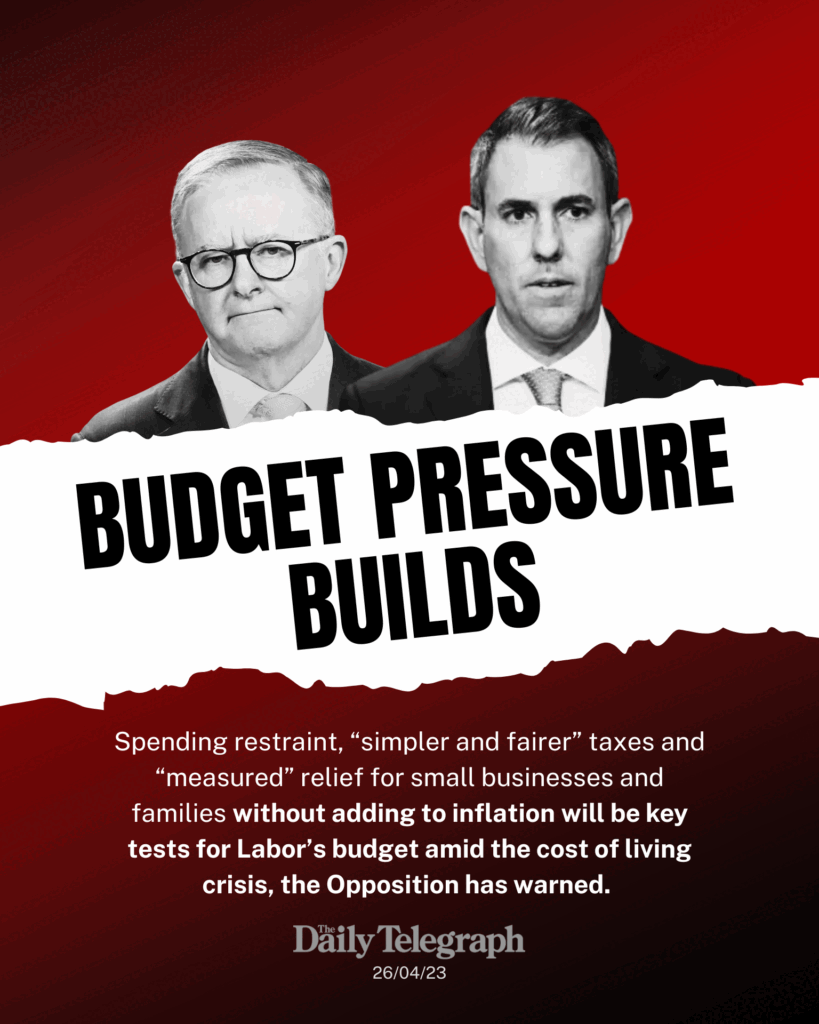Labor’s second Budget will be an opportunity to correct the mistakes of its first.
Independent economists have described the first Labor Budget as “the weakest fiscal strategy in recent times.”
It increased spending by $115 billion and made the structural deficit worse – and Australian families are the ones paying a high price for this poor budget management.
Now with economists predicting a commodities and income tax windfall of more than $90 billion, Labor must use this opportunity to pay down debt not spend more.
And Labor must start to make good on its broken promises to Australians.
The Prime Minister promised on 97 occasions that he would lower electricity prices by $275 – but there isn’t an Australian with a bill that indicates that their power prices have come down by $275 under this Labor Government.
Next week’s Budget must provide a plan to address the cost of living crisis and that it must be a plan with real fiscal restraint.
Australian families are making tough decisions about their own budgets right now. Jim Chalmers and Anthony Albanese must show that they are prepared to do the same.
This Budget must deliver:
1. Fiscal restraint to take pressure off families: The government should listen to the calls of the BCA, AiGroup, ACCI and market economists to restore the fiscal guardrails to instill budget discipline and return the Budget to balance.
2. Simpler and fairer taxes, not higher ones: Higher taxes lead to higher prices. Increased taxes on business will only be passed on to consumers while destroying investment in the industries that are driving our economic recovery. Labor should commit to the stage 3 tax cuts in full and reverse its decisions to raise taxes on superannuation and franking credits.
3. Real action on productivity to make small businesses and families lives easier: Deloitte Access Economics are forecasting GDP per capita to flatline, and independent analysis from the e61 institute has shown that Labor’s industrial relation reforms will stifle business growth and hurt competition.
4. Measured relief for small businesses and families that does not add to inflation: Australian families and small businesses are still waiting for the $275 in energy relief Labor promised before the election and the $1.5 billion promised at Christmas. Meanwhile, more than 10 million Australians will have $1,500 less in their pockets by tax time due to decisions taken by Labor.
5. No more broken promises: Labor has broken promises on taxing franking credits, on taxing super, on cheaper mortgages, on working with business, and on cheaper energy bills. Labor should abandon its policies that break these promises and take responsibility for the challenges facing Australians struggling to get ahead.
Core inflation in Australia is higher than many of the advanced economies around the world – higher than the entire G7. We are leading the world in the worst way possible.
It shows inflation is far too high under this government and after almost a year in office it is time the Prime Minister and the Treasurer take responsibility.
Inflation is home-grown. It is not coming from Vladimir Putin. It is not coming from the war in Ukraine. Inflation is coming from Canberra.
Next week’s Budget is the government’s opportunity to help Australian families by reining in spending and delivering a budget surplus.
The test for this Budget will be to balance the budget, deliver simpler and lower taxes, not higher ones and embrace reforms that grow the economy and make life easier for small businesses and families.
Day after day, this Labor Government has spent more time attacking the Coalition, instead of attacking inflation.
Furthermore, the latest Monthly Financial Statements show a budget surplus is achievable for a government prepared to make tough decisions and rein in spending.
The Budget is still benefitting from nine years of the Coalition’s strong economic management with windfall company and income tax receipts, and high commodities prices driving an enormous turnaround in the budget bottom line.
The Coalition left the government an economy with record low employment, pro-business settings, and a strong resources and agricultural industry.
It is essential the upcoming Budget consolidates these gains and that the government makes the tough calls to put downward pressure on inflation and interest rates.
This Budget will be Jim Chalmers’ biggest test as Treasurer.
With an economy this strong, any responsible and credible Treasurer should have their sights set on a surplus.
If the Treasurer does not get spending under control, his Budget will only add to inflation. This would mean the Labor Government is adding to the cost of Australian mortgages, rents, and groceries.
If the Treasurer can’t deliver a surplus now, then when will he?
Read The Courier Mail article on why Sunshine Coast road and rail projects are at risk by clicking below:

